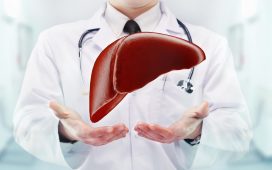Adding foods high in calcium and potassium to the diet may help prevent recurrent symptomatic kidney stones
FRIDAY, Aug. 12, 2022 (HealthDay News) — Lower dietary calcium and potassium intake are risk factors for symptomatic kidney stone recurrence, according to a study published in the August issue of the Mayo Clinic Proceedings.
Api Chewcharat, M.D., from the Mayo Clinic in Rochester, Minnesota, and colleagues assessed whether dietary factors were predictive of symptomatic recurrence of kidney stones. The analysis included 411 local incident symptomatic kidney stone formers (medical record validated) and 384 controls seen at the Mayo Clinic between Jan. 1, 2009, and Aug. 31, 2018, who completed a food frequency questionnaire.
The researchers found that lower dietary calcium, potassium, caffeine, phytate, and fluid intake were all associated with higher odds of an incident symptomatic kidney stone. During a median 4.1 years of follow-up, 73 incident stone formers experienced symptomatic recurrence. Lower dietary calcium and lower potassium intake were predictive of symptomatic kidney stone recurrence when adjusting for body mass index, fluid intake, and energy intake. Lower dietary calcium intake remained a predictor of recurrence with further adjustment for nondietary risk factors, but lower potassium intake only remained a predictor of recurrence among those not taking thiazide diuretics or calcium supplements.
“Enriching diets in stone formers with foods high in calcium and potassium may help prevent recurrent symptomatic kidney stones,” the authors write.
Two authors disclosed financial ties to the pharmaceutical and biopharmaceutical industries.
Copyright © 2022 HealthDay. All rights reserved.








